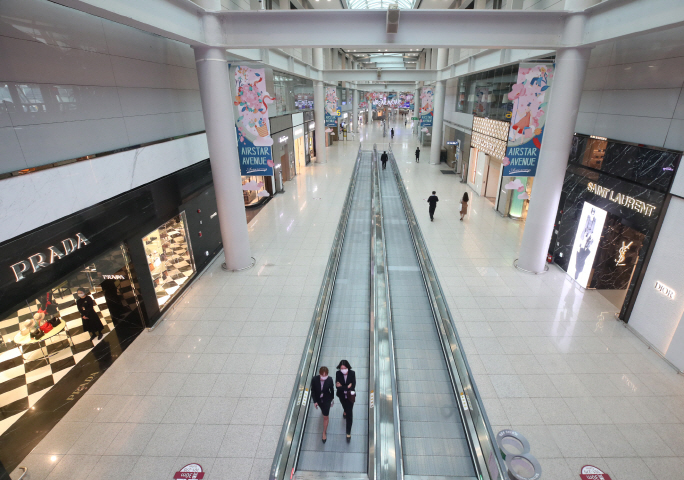Consumption expenditures on tourism and leisure hit hard by COVID-19
By YonhapPublished : April 26, 2021 - 11:59

Consumption expenditures in South Korea's tourism and leisure sector decreased by more than 20 percent last year due to the coronavirus pandemic, a state-funded think tank said Monday.
In particular, foreigners' spending in the domestic tourism and leisure sector plunged by nearly 80 percent and the travel industry was hit hardest among the relevant industries, the Korea Culture and Tourism Institute said.
Last year, consumption expenditures in the nation's tourism and leisure industries were estimated at 134.89 trillion won ($121 billion), down 21.8 percent, or 37.68 trillion won, from the previous year, the institute said.
Of the total expenditures, foreigners' spending plummeted 76.6 percent to 1.66 trillion won, while local people's spending fell 19.5 percent to 133.24 trillion won, it noted.
By month, the tourism and leisure sector expenditures marked the steepest decline of 45.7 percent to 7.54 trillion won in December when the third wave of COVID-19 began here. In March, when the coronavirus began to spread in earnest nationwide, the decrease rate was 33.5 percent.
By industry, consumption expenditures in the travel industry showed the steepest fall last year, diving 83.5 percent to 407.1 billion won, the institute said.
The decrease rate for the casino industry was 78.8 percent, compared with 73.5 percent for duty-free retail, 71.7 percent for the airline industry, 59.2 percent for the tourism souvenirs and gifts business, and 45.4 percent for the tourism accommodation industry, it said.
Exceptionally, the car rental industry posted a growth of 4.7 percent to 531.7 billion won, it noted, adding all the figures were estimated from credit card spending by foreigners and locals. (Yonhap)
In particular, foreigners' spending in the domestic tourism and leisure sector plunged by nearly 80 percent and the travel industry was hit hardest among the relevant industries, the Korea Culture and Tourism Institute said.
Last year, consumption expenditures in the nation's tourism and leisure industries were estimated at 134.89 trillion won ($121 billion), down 21.8 percent, or 37.68 trillion won, from the previous year, the institute said.
Of the total expenditures, foreigners' spending plummeted 76.6 percent to 1.66 trillion won, while local people's spending fell 19.5 percent to 133.24 trillion won, it noted.
By month, the tourism and leisure sector expenditures marked the steepest decline of 45.7 percent to 7.54 trillion won in December when the third wave of COVID-19 began here. In March, when the coronavirus began to spread in earnest nationwide, the decrease rate was 33.5 percent.
By industry, consumption expenditures in the travel industry showed the steepest fall last year, diving 83.5 percent to 407.1 billion won, the institute said.
The decrease rate for the casino industry was 78.8 percent, compared with 73.5 percent for duty-free retail, 71.7 percent for the airline industry, 59.2 percent for the tourism souvenirs and gifts business, and 45.4 percent for the tourism accommodation industry, it said.
Exceptionally, the car rental industry posted a growth of 4.7 percent to 531.7 billion won, it noted, adding all the figures were estimated from credit card spending by foreigners and locals. (Yonhap)






![[KH Explains] How should Korea adjust its trade defenses against Chinese EVs?](http://res.heraldm.com/phpwas/restmb_idxmake.php?idx=644&simg=/content/image/2024/04/15/20240415050562_0.jpg&u=20240415144419)












![[Today’s K-pop] Stray Kids to return soon: report](http://res.heraldm.com/phpwas/restmb_idxmake.php?idx=642&simg=/content/image/2024/04/16/20240416050713_0.jpg&u=)